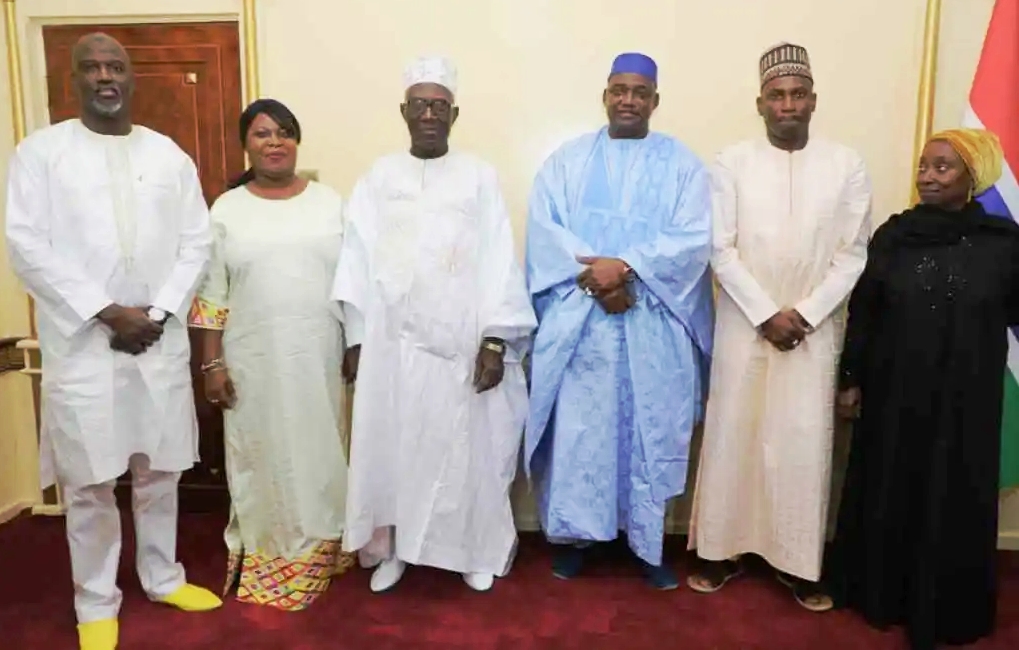Gambiaj.com – (Banjul, The Gambia) – In a revealing testimony before the National Assembly’s Special Select Committee on the Sale and Disposal of Assets, former Janneh Commission chairperson Surahata Janneh laid bare the improvised and precarious conditions under which one of The Gambia’s most consequential commissions of inquiry operated. What emerged was a picture of a commission born out of urgency, yet critically undermined by the very institutions that empowered it.
The Janneh Commission, established in 2017 to investigate the financial affairs of former President Yahya Jammeh, began work without a legal framework of its own, no independent budget, no offices, and no staff of its own hiring.
“There was no Janneh Commission Act,” Janneh told lawmakers. “We had to work under the 1903 Commission of Inquiry Act and Section 202 of the Constitution.”
Instead of being equipped with the tools befitting such a historic assignment, the Commission improvised almost every aspect of its operations – from its legal mandate to its administrative logistics.
Housed in Djembe Hotel, its commissioners, secretariat, and investigators shared makeshift spaces, with over 50 personnel seconded from other public offices or recruited informally. “We didn’t hire anyone directly,” Janneh noted.
Investigators submitted statements via the lead counsel, and the budget – initially drafted by the Ministry of Justice – had to be reviewed and adjusted internally by commissioners themselves.
The testimony raises a fundamental question: Why the rush to set such a critical process in motion before ensuring the necessary legal, institutional, and financial foundations were in place? The stakes were immense – recovering state assets, exposing kleptocracy, and restoring public trust – yet the setup suggested a troubling lack of foresight.
Janneh’s narrative also sheds light on his personal commitment to independence, underscoring the structural vulnerabilities the Commission faced. When Cabinet attempted to influence the Commission’s operations, Janneh firmly rejected the interference.
“They had no right to tell us how to operate,” he said. “If they had insisted, I would have resigned.”
Notably, while the Truth, Reconciliation and Reparations Commission (TRRC) was anchored in a dedicated Act of Parliament, the Janneh Commission was never granted the same statutory legitimacy.
Its procedures and internal workings were built on consensus among the commissioners, guided by personal expertise and a shared ethical compass.
“There were no votes among commissioners. We discussed and reached agreement,” Janneh said.
The legal notice that established the Commission initially gave it just three months to complete its work – a deadline so unrealistic as to be almost farcical, given the scale of Jammeh’s financial empire.
The final report stretched nearly 1,600 pages and covered a staggering range of assets, including luxury vehicles, livestock, real estate, bank accounts, and shares. “Three months was never going to be enough,” Janneh admitted.
Though he emphasized that the Minister of Justice never interfered with the Commission’s work directly, the structural dependency on the Ministry – from budget approval to staffing – raises concerns about autonomy.
That dependence, combined with the lack of a legal backbone, left the Commission exposed to potential manipulation and vulnerability.
Yet, for all its fragility, former Janneh Commission chairperson Surahata Janneh said they managed to deliver a comprehensive report that has since shaped public discourse and triggered political debate over the management of the recovered assets. Janneh insists their work was guided by fairness and impartiality.
“I’ve never been a member of any political party,” he said. “Not under Jawara, not under Jammeh, not now.”
As The Gambia’s legislature continues to probe what happened after the Commission’s work – particularly regarding asset disposal and alleged political interference – Janneh’s testimony serves as a sobering reminder: even the most critical instruments of justice can be undermined by institutional haste and inadequate planning.
And that, perhaps, is the most damning revelation of all.










